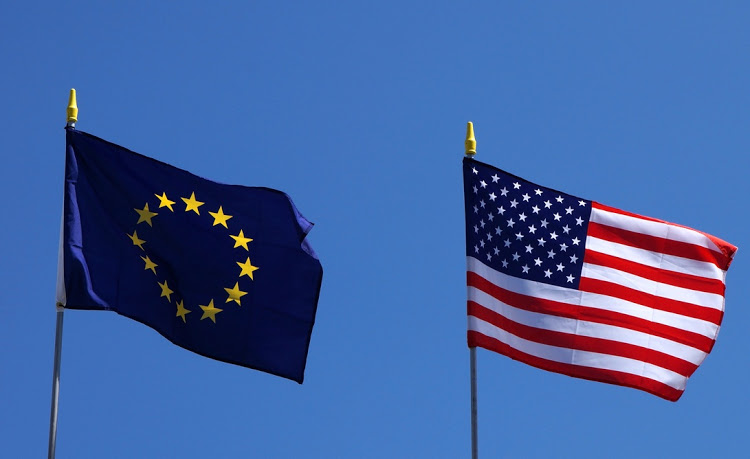EU retaliates tariffs
June 22, 2018 | Expert Insights

The European Union (EU) has introduced retaliatory tariffs on US goods as a top official launched a fresh attack on President Donald Trump's trade policy.
The duties on €2.8bn (£2.4bn) worth of US goods came into force on Friday.
Background
The United States has a history of tariffs dating back to the 1700s. In 2002, tariffs imposed by Bush were thought to have cost the country 200,000 manufacturing jobs. They were lifted a mere 21 months after their imposition. In 2009, Obama imposed a 35% tariff on Chinese tires after lobbying from American companies. This reportedly saved over 1000 jobs. However, some studies have shown that the tariff cost the country $2 billion in total, including a retaliatory ban on American chicken parts by China.
President Trump is known to have a protectionist outlook on trade. On the campaign trail, he promised tariffs against countries such as China, whom he blamed for loss of jobs. He also criticized “bad” trade deals and “unfair trade practices” against America. He said that other countries were "dumping vast amounts of steel all over the United States, which essentially is killing our steelworkers and steel companies”.
Since taking office, Trump has withdrawn from the Trans-Pacific Partnership, and initiated the renegotiation of the North Atlantic Free Trade Agreement. In recent months, experts have begun sounding the alarm about an impending trade war between US and China, the two largest economies in the world. These fears solidified in March, when Trump announced global import tariffs of 25% on steel and 10% on aluminum. The President cited “national security” in order to circumvent WTO commitments. Since then, tensions have escalated. The US has imposed tariffs worth over $150 billion; Beijing responded with $50 billion worth of tariffs. Read more on the US-China trade war here.
The US is highly reliant on steel imports. American steel production has fallen from 112m tons to 86.5m tons since 2000. Employment provided by the industry has fallen from 135,000 jobs to 83,600 jobs. Canada is the United States’ biggest steel exporter at 16%, followed by Brazil, South Korea, and Mexico. Japan is 7th and India is 10th.

Analysis
The EU will impose tariffs on US imports ranging from Harley-Davidson motorbikes to jeans from July in retaliation over Donald Trump’s decision to put duties on European aluminum and steel. Despite the reluctance of UK’s international trade secretary, Liam Fox, to back the EU’s proposed “tit for tat” measures, the European commission said it had the full support of all 28-member states to act. Fox has been watchful in supporting the EU’s retaliatory measures. He has also suggested that the UK is likely to be handed an exemption from the US tariffs once the country has left the EU.
The EU is finalizing the list it will submit to the World Trade Organization (WTO), but the bloc aims to introduce “rebalancing” tariffs on about €2.8bn (£2.5bn) worth of US steel as well as industrial and agricultural products, including bourbon, peanut butter, cranberries, and orange juice.
The EU has also taken a complaint to the WTO. If the case is ongoing after three years, the EU plans to impose further tariffs of €3.6bn on US products. Last month, Trump brought in tariffs of 25% on EU steel imports and 10% on imported aluminum effective June 1, citing “national security” interests.
After a meeting of senior EU officials, the European commission vice-president Maroš Šefčovič stated that the EU regretted the White House’s “illegal” act. He said, “The new duties start applying in July. It is a measured and proportionate response to the unilateral and illegal decision taken by the United States.”
Jyrki Katainen, the commission’s vice-president for jobs and a former Finnish prime minister, said that all the member states had agreed with the action to be taken against US importers and recognized the need to stand together. He said: “We have had the full support from all the member states on these issues which we are about to propose now. All the member states understand that if they want to defend rules and trade we have to play by the book. It is difficult to assess what President Trump will decide to do next, but this is our response.”
Meanwhile Germany, France, and the UK have signed a joint letter demanding that European companies are safe from US sanctions imposed on Iran after Trump’s decision to pull out of the nuclear agreement with Tehran known as the Joint Comprehensive Plan of Action (JCPOA). The three EU member states were signatories to the 2015 deal, which pursued stopping Iran from developing nuclear weapons in exchange for the lifting of economic sanctions.
Assessment
Our assessment is that these tariffs have the potential to negatively impact both the American and global economy. As stated previously, we believe that Trump’s “America first” trade strategy also runs the risk of alienating allies and damaging diplomatic ties. Trump’s actions in Iran have also been against the interest of several security and trade partners. It is possible that affected countries will take the issue to the WTO, as India has done.








Comments